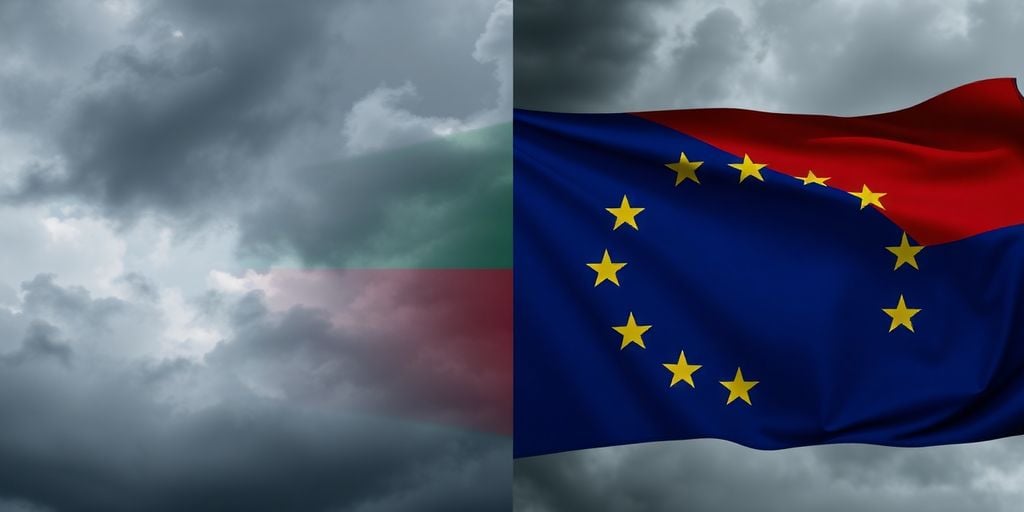Bulgaria’s Democratic Foundations Tested Amidst EU Integration
Bulgaria’s recent entry into the euro zone, celebrated in Brussels, has been overshadowed by a stark report from the European Commission detailing an erosion of judicial independence and persistent political interference. The arrest of Varna mayor Blagomir Kotsev on corruption charges, widely perceived as politically motivated, sparked public protests, highlighting deep-seated governance issues that threaten the nation’s democratic fabric and the EU’s own principles.
Key Takeaways
- Bulgaria’s democratic institutions are facing significant challenges, including a compromised judiciary and political interference.
- The EU is urged to actively support and defend democratic norms in Bulgaria, rather than remaining silent.
- Failure to address these issues could lead Bulgaria down a path similar to Hungary’s "electoral autocracy."
- The European People’s Party (EPP) faces scrutiny for its silence on democratic backsliding within member states like Bulgaria.
Judicial Independence Under Fire
The European Commission’s report indicates a worrying decline in judicial independence, with a significant drop in public trust. The prosecutor general’s extensive authority remains largely unchecked, and attempts to reform this power have been stymied. The arrest of Mayor Kotsev and other figures from the pro-European coalition "We Continue the Change–Democratic Bulgaria" has been criticized for irregular proceedings and alleged pressure on witnesses, further fueling concerns about politically motivated actions.
The Resilience of the Status Quo
Despite Bulgaria’s outward signs of European integration and modernization, deep-rooted governance problems persist. For over a decade, the GERB party has maintained significant influence, often leveraging fears of the past and promises of a Euro-Atlantic future. Even with new leadership and a coalition government, the underlying systemic issues that allow for the exploitation of law for personal gain remain. Figures like oligarch Delyan Peevski, sanctioned by US and UK authorities for corruption, continue to wield considerable power, often relying on parliamentary alliances to maintain influence.
EU’s Role in Safeguarding Democracy
While EU policymakers are aware of the problems, a more robust response is deemed necessary. Beyond resolutions and fact-finding missions, the EU has the financial leverage to link funding to the respect for the rule of law. Establishing permanent monitoring mechanisms and fostering closer operational links with local authorities are crucial steps. Furthermore, the EPP, as a major political force, is called upon to uphold its stated commitment to the rule of law and break its silence on democratic backsliding within its member parties. True European integration, the article argues, requires an unwavering defense of shared democratic values, not just economic or political alignment.
Sources
- The decay within: Why the EU needs to help defend Bulgaria’s democracy, European Council on Foreign Relations (ECFR).






